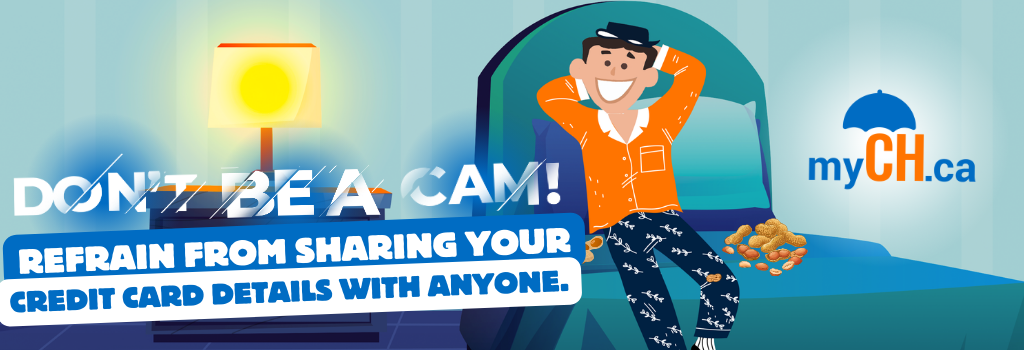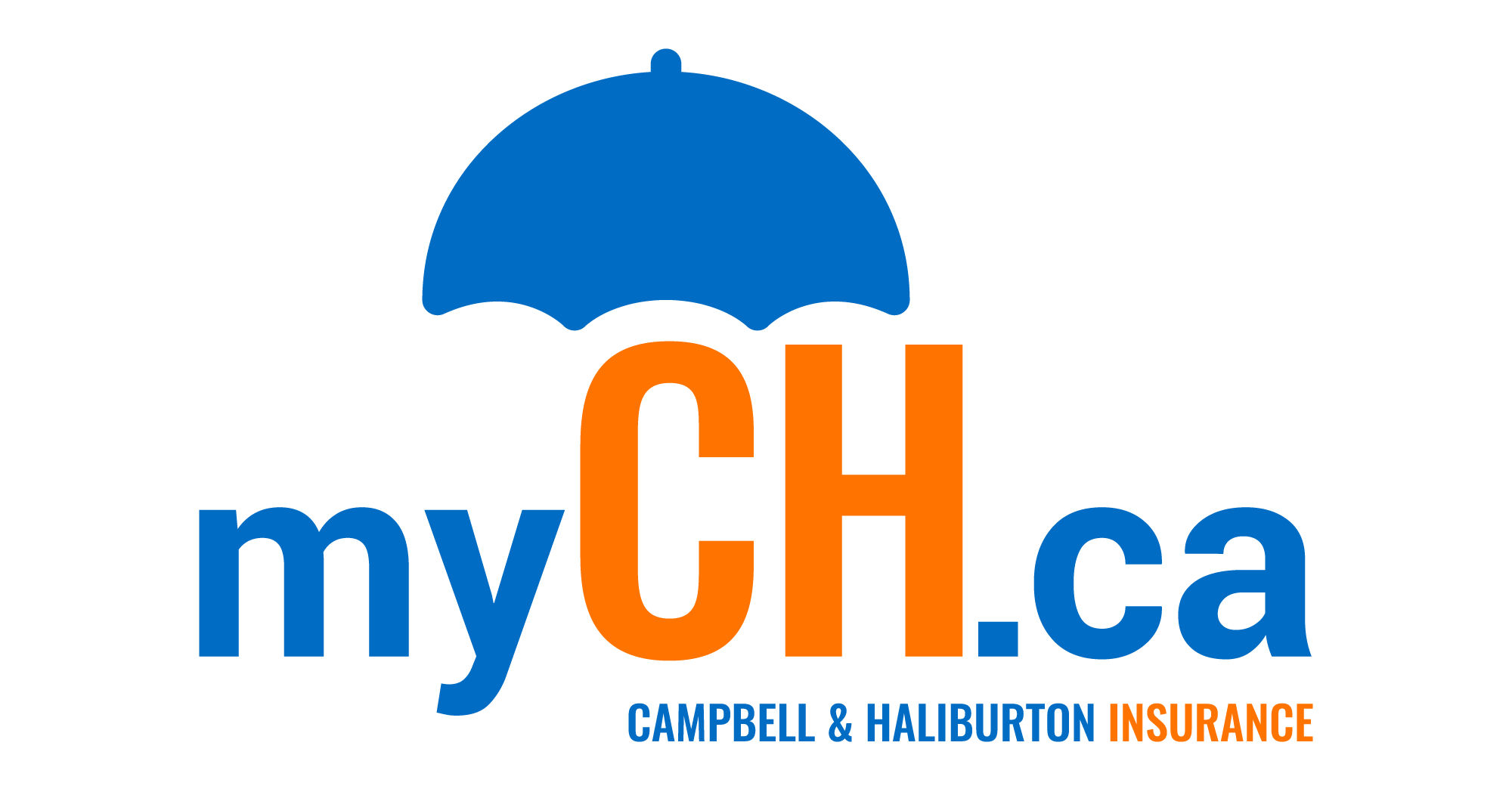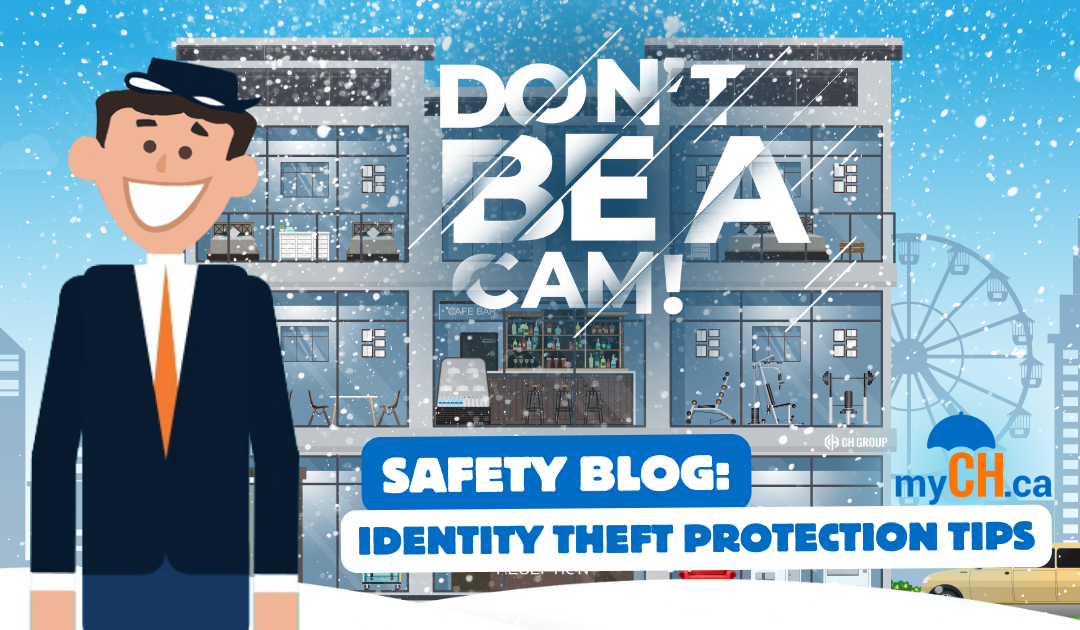Campbell & Haliburton Insurance strongly emphasizes the significance of identity protection. Therefore, in this blog, Campbell & Haliburton Insurance will detail some important identity theft protection tips! The Canada Revenue Agency (CRA) takes the protection of taxpayer information seriously, offering many tips to protect you from identity theft. Identity theft is the unauthorized use of information by third parties for criminal purposes and includes, but is not limited to, your name, date of birth, address, and social insurance number (SIN). The information can be used for various purposes, including opening a bank account, applying for a loan or mortgage, obtaining benefits such as GST/HST rebates or refunds, credit payments, tax refunds, etc. If the Agency believes an individual’s information has been compromised, the individual will be notified by mail.
myCH.ca’s Identity Theft Protection Tips
How to Protect Yourself
- Be extremely cautious about providing personal information over the phone, such as your SIN or date of birth.
- The CRA will not ask you to:
- Provide personal information by email.
- Pay taxes or fees on lottery or sweepstakes winnings.
- Keep access codes, user IDs, passwords, and PINs secret.
- Ensure your address is current with all government departments and agencies.
- Regularly check that your personal information is up-to-date and valid by registering for My Account on the CRA Website at canada.ca/my-cra-account
- Choose a tax preparer that you trust and check their references:
- Consider authorizing your representative to use CRA’s secure “Represent a Client” online service.
- Carefully review your return before filing, and ensure you receive your assessment notice.
- Use the CRA website to check if a charity is registered before donating.
How to Minimize Risk
- Think carefully before clicking on links in emails to avoid the practice of phishing:
- Criminals may steal information by using official-looking emails that will take you to a fake website that looks almost identical to a legitimate business, financial institution, or agency.
- You will be asked to provide personal or financial information.
- Phishing scams often apply pressure by conveying there may be an immediate financial impact or risk by not complying.
- Close any suspicious emails and contact the business/organization to check whether the email is legitimate. Use contact information from a credible source rather than the information provided in the email.
- Protect your SIN, never use it as an ID, and question any organization requesting it if it’s legally required. If not, use another form of ID.
- Watch financial transactions and follow up on any transactions that look suspicious.
- Immediately report lost or stolen credit or debit cards.
- Keep passwords confidential.
- Install internet security software on your computer.
- Be cautious about providing personal information by email, internet, or social networking sites.

Reporting Identity Theft
Safety Tip: Never provide credit card information to an unsolicited caller.
If you are suspicious that you are a victim of identity theft, then immediately notify:
- Your financial institute and local police
- CRA at 1-800-959-8281
- A credit reporting agency (i.e., Equifax or TransUnion)
- 1-800-O-Canada (1-800-622-6232) for information on replacing identification such as a health card, driver’s license, or SIN
- The Royal Canadian Mounted Police’s Phonebusters at info@phonebusters.com or call 1-888-495-8501 if you suspect information has been gathered as part of a scam or you have received a fraudulent communication
Finally, monitoring and maintaining records of recent financial transactions and reviewing your credit report for any status changes will be essential. For more information, Revenue Canada also offers information on protecting yourself from scams and

